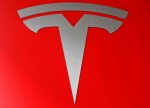
- All Instrument Types
- Indices
- Equities
- ETFs
- Funds
- Commodities
- Currencies
- Crypto
- Bonds
- Certificates
Please try another search

Auto Sector Grapples With Peak U.S. Sales, Safety Recalls

The auto industry has been enjoying very strong sales trends lately, but further upside from the lofty levels of 2017 appears hard to come by. The industry is also faced with the challenge of profitably manufacturing electric vehicles.
There are a number of factors that raise concern for the auto sector in both the short and the long run. Below, we discuss a few key challenges that the auto sector might face in the coming months.
EV Race, with No Hint of Profit
In an effort to respond to stringent emission standards and the proposals made by some Asian and European countries to prohibit internal combustion engines driven by fossil fuels, many traditional automakers across the globe have geared up for electric vehicles. However, the new technology is yet to yield profits — the key to the survival of any business entity
Presently, EVs account for less than 1% of U.S. vehicles sales and a small part of total vehicles sold across the globe. EV pioneer Tesla (NASDAQ:TSLA), Inc. (TSLA) is losing money persistently.
Despite these odds, traditional automakers are investing huge amount of money to brace for an all-electric future. These companies are using profits generated from the sale of gasoline-fueled trucks and sport utility vehicles to invest in the expensive EV technology.
Safety Recall Expenses
One serious problem automakers across the globe are facing is huge expenses related to safety recalls. According to the data provided by the U.S. Transportation Department, automakers recalled 53.2 million vehicles in the United States in 2016, setting a new record.
It is expected that in 2017, the recall figures will be very high due to defective Takata airbag inflators, which caused significant number of recalls between 2014 and 2016.
Many auto giants such as General Motors Company (NYSE:GM) (GM), Ford Motor Company (NYSE:F) (F), Honda Motor Co., Ltd. (HMC) and Volkswagen (DE:VOWG_p) AG (VLKAY) have been facing recall issues in recent times.
U.S. Sales Set to Dip
Following two years of record volumes, most analysts believe that U.S. auto sales have likely declined in 2017 (we will get final December numbers in the next couple of weeks). This will be the first full-year sales decline since the recession. Per the projection given by PricewaterhouseCoopers, auto sales are likely to reach 17.1 million in 2017, down from 17.6 million in 2016. The National Automobile Dealers Association projected 2018 sales of 16.7 million vehicles.
In fact, constrained demand during the recession period, which saw sales picking up in the last few years, seems to have got absorbed now. Sales have been falling as buyers have become more unpredictable despite generous incentives offered on vehicles. Those discounts, which erode profits of automakers, have recently spread to high-margin pickup trucks and SUVs that have created strong demand amid low gas prices.
Declining Used Car Prices
According to the Moody’s report, prices of used cars are declining in the United States, as millions of leases are nearing expiry date. This is not bad news for the customers but definitely not for automakers and dealers. In fact, low prices of used vehicles compel automakers to offer higher discounts to customers on new vehicles, which in turn put strain on their margins.
Rising Delinquency Rates
According to Moody’s, huge competition among banks, finance companies and credit unions have resulted in loosening of the underwriting conditions. Presently, loan terms in the United States are more than six months longer than they were in 2010. Also, lenders are being allowed the facility to roll a significant part of the unpaid balance into new loans. This is leading to rising delinquency and its long-term effect can be serious.
Market Share Concentration
The majority share of the automobile market is held only by a few leading automakers. Moreover, high dependence on these automakers makes auto parts’ suppliers vulnerable to pricing pressure and production cut. Pricing pressure from automakers constricts margins of parts suppliers. Simultaneously, frequent production cuts by automakers in order to cope with market adjustments affect suppliers’ operations.
Some auto industry suppliers that are dependent on a few major automakers are Meritor Inc. (MTOR), Tenneco Inc. (TEN) and Magna International Inc. (MGA).
Bottom Line
The auto industry continues to face a number of challenges. As a result, we would advise investors to dump stocks with a Zacks Rank # 4 or 5 such as Tesla, Inc. (TSLA), Superior Industries International, Inc. (SUP) and Continental AG (DE:CONG) (CTTAY).
Meanwhile, investors who continue to be optimistic about the sector can check out companies like Allison Transmission Holdings, Inc. (ALSN), AB Volvo (VLVLY) and Wabco Holdings Inc. (WBC). While Allison Transmission and Volvo sport a Zacks Rank #1 (Strong Buy), Wabco Holdings carries a Zacks Rank #2 (Buy).You can see the complete list of today’s Zacks #1 Rank stocks here.
Allison Transmission has a long-term growth rate of 10%. Shares of the company have gained 22.5% year to date.
Volvo has a long-term growth rate of 15%. Shares of the company have gained 59.3% on a year-to-date basis.
Wabco Holdings has a long-term growth rate of 15%. Its shares have rallied 32.3% year to date.
Wall Street’s Next Amazon (NASDAQ:AMZN)
Zacks EVP Kevin Matras believes this familiar stock has only just begun its climb to become one of the greatest investments of all time. It’s a once-in-a-generation opportunity to invest in pure genius.
Wabco Holdings Inc. (WBC): Free Stock Analysis Report
Volvo Ab (VLVLY): Free Stock Analysis Report
Volkswagen AG (VLKAY): Free Stock Analysis Report
Tesla Inc. (TSLA): Free Stock Analysis Report
Tenneco Inc. (TEN): Free Stock Analysis Report
Superior Industries International, Inc. (SUP): Free Stock Analysis Report
Meritor, Inc. (MTOR): Free Stock Analysis Report
Magna International, Inc. (MGA): Free Stock Analysis Report
Honda Motor Company, Ltd. (HMC): Free Stock Analysis Report
General Motors Company (GM): Free Stock Analysis Report
Ford Motor Company (F): Free Stock Analysis Report
Continental AG (CTTAY): Free Stock Analysis Report
Allison Transmission Holdings, Inc. (ALSN): Free Stock Analysis Report
Original post
Zacks Investment Research
Related Articles

The markets have been sluggish this week as investors hope for a jolt later in the week when AI juggernaut NVIDIA Corporation (NASDAQ:NVDA) reports fourth quarter and year-end...

On Friday, a wave of selling pressure swept across the US equity markets, leaving a trail of losses. The S&P 500 closed down 1.7%, the DOW slid 1.69%, and the NASDAQ tumbled a...

Palantir remains highly valued with a 460x P/E ratio and a 42.5x P/B ratio, far above its peers. The stock's beta of 2.81 signals high volatility, meaning sharp moves in both...
Are you sure you want to block %USER_NAME%?
By doing so, you and %USER_NAME% will not be able to see any of each other's Investing.com's posts.
%USER_NAME% was successfully added to your Block List
Since you’ve just unblocked this person, you must wait 48 hours before renewing the block.
I feel that this comment is:
Thank You!
Your report has been sent to our moderators for review




Add a Comment
We encourage you to use comments to engage with other users, share your perspective and ask questions of authors and each other. However, in order to maintain the high level of discourse we’ve all come to value and expect, please keep the following criteria in mind:
Enrich the conversation, don’t trash it.
Stay focused and on track. Only post material that’s relevant to the topic being discussed.
Be respectful. Even negative opinions can be framed positively and diplomatically. Avoid profanity, slander or personal attacks directed at an author or another user. Racism, sexism and other forms of discrimination will not be tolerated.
Perpetrators of spam or abuse will be deleted from the site and prohibited from future registration at Investing.com’s discretion.